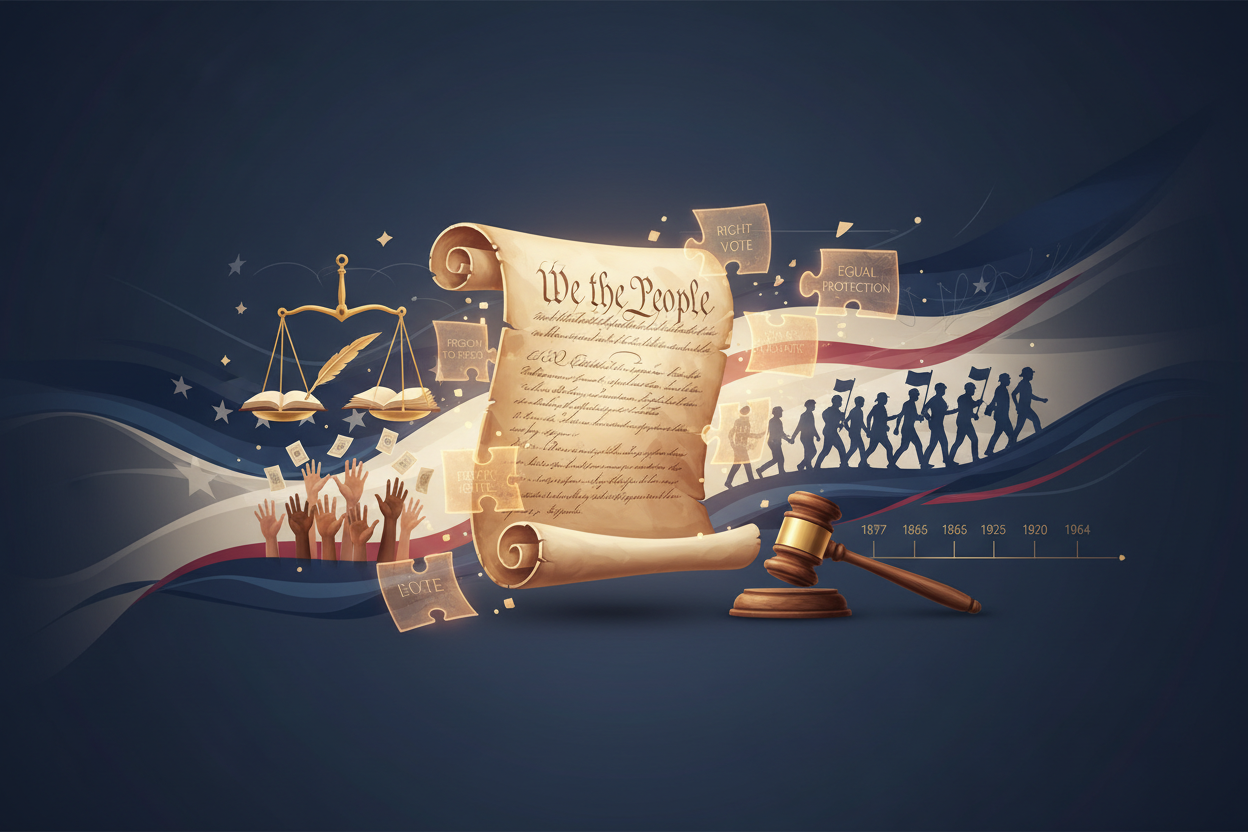Libertarianism: An In-Depth Look at the Philosophy
Libertarianism is more than just a political ideology; it’s a way of life for many who cherish individual freedom above all else. This philosophy advocates for minimal government intervention, emphasizing personal choice, responsibility, and a free-market economy. In this blog post, we’ll delve into the core principles of libertarianism, explore its historical roots, and consider its relevance in today’s world. Whether you’re new to this ideology or seeking to deepen your understanding, read on to discover what makes libertarianism a unique and compelling perspective.
Understanding the Core Principles of Libertarianism
At the heart of libertarianism is the belief in individual liberty. Libertarians argue that people should be free to live their lives as they see fit, provided they do not infringe on the rights of others. This principle is often summarized by the non-aggression axiom, which states that aggression against another’s person or property is inherently wrong.
Another fundamental aspect is the commitment to a free-market economy. Libertarians advocate for minimal government interference in economic affairs, believing that individuals and businesses are better equipped to make decisions that lead to prosperity. This economic freedom is seen as a catalyst for innovation, efficiency, and overall societal progress.
Historical Roots of Libertarianism
The roots of libertarian thought can be traced back to classical liberalism, which emerged in the 18th century. Thinkers such as John Locke and Adam Smith laid the groundwork for modern libertarianism with their emphasis on personal freedom and economic liberty. Locke’s ideas about natural rights and Smith’s advocacy for free markets have had a lasting impact on libertarian philosophy.

In the 20th century, figures like Ayn Rand, Ludwig von Mises, and Friedrich Hayek further developed libertarian ideas, challenging the growing influence of government in personal and economic spheres. Their works continue to inspire libertarians today, providing a comprehensive framework for understanding and applying these principles in contemporary society.

Libertarianism in Practice: Real-World Applications
Libertarianism isn’t just a theoretical construct; it’s a practical approach to governance and personal conduct. In politics, libertarians often push for deregulation, tax cuts, and policies that protect civil liberties. They argue for a limited government role, focusing on essential functions like defense and law enforcement while leaving other areas to the private sector.
On a personal level, libertarians emphasize individual responsibility and ethical behavior. They believe that people should be free to make their own choices, whether it’s in business, lifestyle, or personal relationships, as long as they do not harm others. This approach fosters a culture of innovation and personal empowerment.
The Challenges and Criticisms of Libertarianism
Despite its appeal, libertarianism faces several challenges and criticisms. Some argue that a lack of government oversight can lead to economic inequality and exploitation. Critics also raise concerns about the feasibility of maintaining order and protecting vulnerable populations without robust government intervention.
Moreover, in a complex, interconnected world, the libertarian emphasis on individualism can sometimes seem at odds with the need for collective action on global issues like climate change and pandemics. These challenges prompt ongoing debate within the libertarian community about how to balance principle with practicality.
The Relevance of Libertarianism Today
In an era marked by rapid technological change and increasing government intervention, libertarianism offers a distinct voice in political discourse. Its focus on personal freedom and economic liberty resonates with those who value autonomy and self-determination. As societies grapple with issues like privacy, digital rights, and economic policy, libertarian principles provide a valuable lens for evaluating potential solutions.
Furthermore, the rise of decentralized technologies like blockchain and cryptocurrency aligns with libertarian ideals, offering new ways to bypass traditional power structures and empower individuals. As these technologies continue to evolve, they may bolster the relevance of libertarianism in the digital age.
Conclusion
Libertarianism is a philosophy that champions the rights of the individual and the power of the free market. While it faces criticisms and challenges, its core principles continue to influence political and economic thought globally. By advocating for minimal government and maximum personal freedom, libertarianism offers a compelling vision for those seeking to navigate the complexities of modern life. Whether you’re an ardent supporter or a curious observer, understanding libertarianism enriches the broader conversation about the role of government and individual agency in shaping our world.
FAQs
What is the difference between libertarianism and liberalism?
While both ideologies emphasize individual freedom, libertarianism typically advocates for less government intervention across both personal and economic spheres, whereas modern liberalism may support more government involvement in areas like social welfare and economic regulation.
How does libertarianism view taxation?
Libertarians generally view taxation as a form of coercion and argue for lower taxes, believing that individuals should keep more of their earnings and decide how to spend or invest them.
Can libertarianism work in large, complex societies?
Supporters argue that libertarianism can work effectively by fostering innovation and efficiency, while critics contend that some government intervention is necessary to address issues like inequality and public goods.





Leave a Reply
You must be logged in to post a comment.